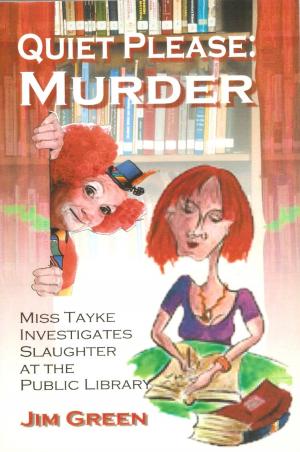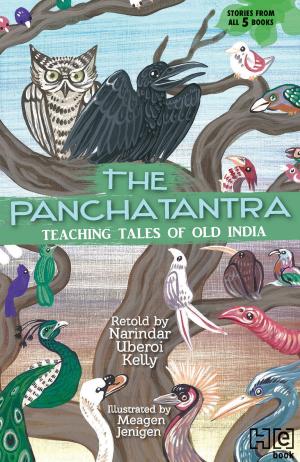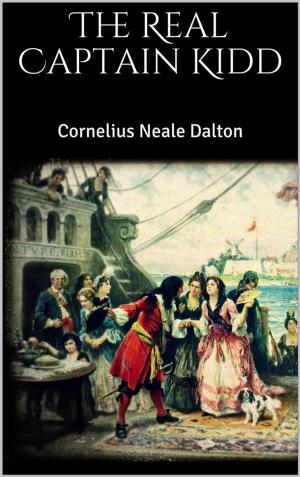| Author: | Carl T. Smith | ISBN: | 9781937563646 |
| Publisher: | River Oaks Publishing | Publication: | September 30, 2011 |
| Imprint: | River Oaks Publishing | Language: | English |
| Author: | Carl T. Smith |
| ISBN: | 9781937563646 |
| Publisher: | River Oaks Publishing |
| Publication: | September 30, 2011 |
| Imprint: | River Oaks Publishing |
| Language: | English |
Carolina Fire is a disturbing chronicle of murder and shame set in the lowcountry of South Carolina. The book is not a redneck, alcoholic wife-beating, mamma-got-run-over-by-a-pickup-truck southern novel, nor is it about money, politics or emerging ghosts from the past. Anger, obsession and familial disintegration create an atmosphere in which evil thrives as a driving force. Although murder is central to the plot, it is the destruction of a human soul and its causes that resonates throughout the novel. As D.H. Lawrence said: To suffer in ones whole self is so great a violation that it is not to be endured. Sam Larkin is a complex paradox of a man, once again drawn into a situation not of his own making. A former wildlife law-enforcement officer, unjustly imprisoned ex-con, teacher and artist, Larkin has come to the lowcountry to find a peace that is sorely lacking in his life; however, as a friend from his past tells him, through his loyalty to friends and to those he loves, trouble seems to seek him out. Despite his past, nothing could prepare Larkin for what he has to face when a former colleague, Robin Streeter, a divorced secondary school psychologist , dies in a house fire. Originally classified as an accident, it is later determined to be murder. Having worked with and been friends with the woman, Larkins sense of morality and loyalty compel him to find the killer. Covington County detective, Campbell Gardner is assigned the case. Knowing Larkins association with the victim, Gardner enlists his help in the investigation. Like Larkin, Gardner has his own devils to deal with. He is not liked by his fellow officers because of his expertise, big city background and affluent lifestyle, as well as the mystery surrounding his arrival in Covington from the police department in Atlanta, Georgia. The killers paranoia results in a second murder, the shooting of Larkins best friend and a vicious attack on Denny Layne Kimbrell, an art gallery owner, friend of Robin Streeters and an admirer of Larkins work and the man himself. Though their relationship in the beginning is professional, violence and Robin Streeters death give birth to a more personal bond. Larkin not only becomes immersed in his work with Gardner, but is also considered a suspect by sheriffs deputy Willy Brister, an alcoholic and disgruntled man, who is obsessed with getting justice at any cost for the dead woman. He does not believe anyone who has served time in prison can ever be rehabilitated, which makes Larkin a prime target. The investigation results in a violent and shocking conclusion that reveals a profound and disturbing motive that has destroyed his spirit. With a cast of vivid supporting characters, the lyrical descriptions of the natural beauty of the lowcountry, and the exploration of the fragility of the human soul and its demons, the plot converges to its revelatory and violent conclusion.
Carolina Fire is a disturbing chronicle of murder and shame set in the lowcountry of South Carolina. The book is not a redneck, alcoholic wife-beating, mamma-got-run-over-by-a-pickup-truck southern novel, nor is it about money, politics or emerging ghosts from the past. Anger, obsession and familial disintegration create an atmosphere in which evil thrives as a driving force. Although murder is central to the plot, it is the destruction of a human soul and its causes that resonates throughout the novel. As D.H. Lawrence said: To suffer in ones whole self is so great a violation that it is not to be endured. Sam Larkin is a complex paradox of a man, once again drawn into a situation not of his own making. A former wildlife law-enforcement officer, unjustly imprisoned ex-con, teacher and artist, Larkin has come to the lowcountry to find a peace that is sorely lacking in his life; however, as a friend from his past tells him, through his loyalty to friends and to those he loves, trouble seems to seek him out. Despite his past, nothing could prepare Larkin for what he has to face when a former colleague, Robin Streeter, a divorced secondary school psychologist , dies in a house fire. Originally classified as an accident, it is later determined to be murder. Having worked with and been friends with the woman, Larkins sense of morality and loyalty compel him to find the killer. Covington County detective, Campbell Gardner is assigned the case. Knowing Larkins association with the victim, Gardner enlists his help in the investigation. Like Larkin, Gardner has his own devils to deal with. He is not liked by his fellow officers because of his expertise, big city background and affluent lifestyle, as well as the mystery surrounding his arrival in Covington from the police department in Atlanta, Georgia. The killers paranoia results in a second murder, the shooting of Larkins best friend and a vicious attack on Denny Layne Kimbrell, an art gallery owner, friend of Robin Streeters and an admirer of Larkins work and the man himself. Though their relationship in the beginning is professional, violence and Robin Streeters death give birth to a more personal bond. Larkin not only becomes immersed in his work with Gardner, but is also considered a suspect by sheriffs deputy Willy Brister, an alcoholic and disgruntled man, who is obsessed with getting justice at any cost for the dead woman. He does not believe anyone who has served time in prison can ever be rehabilitated, which makes Larkin a prime target. The investigation results in a violent and shocking conclusion that reveals a profound and disturbing motive that has destroyed his spirit. With a cast of vivid supporting characters, the lyrical descriptions of the natural beauty of the lowcountry, and the exploration of the fragility of the human soul and its demons, the plot converges to its revelatory and violent conclusion.















